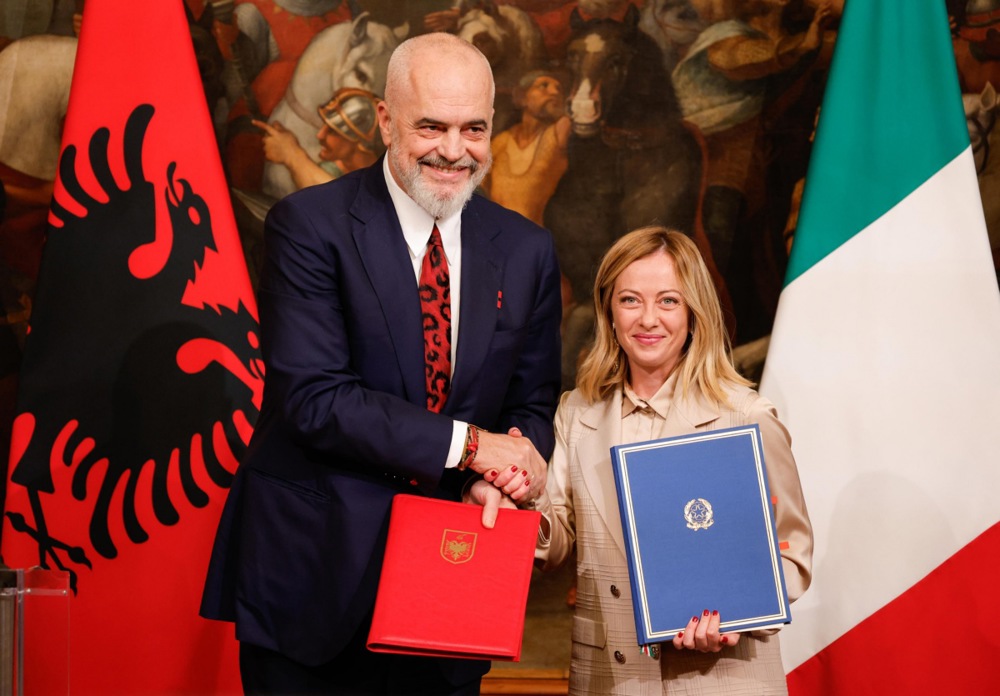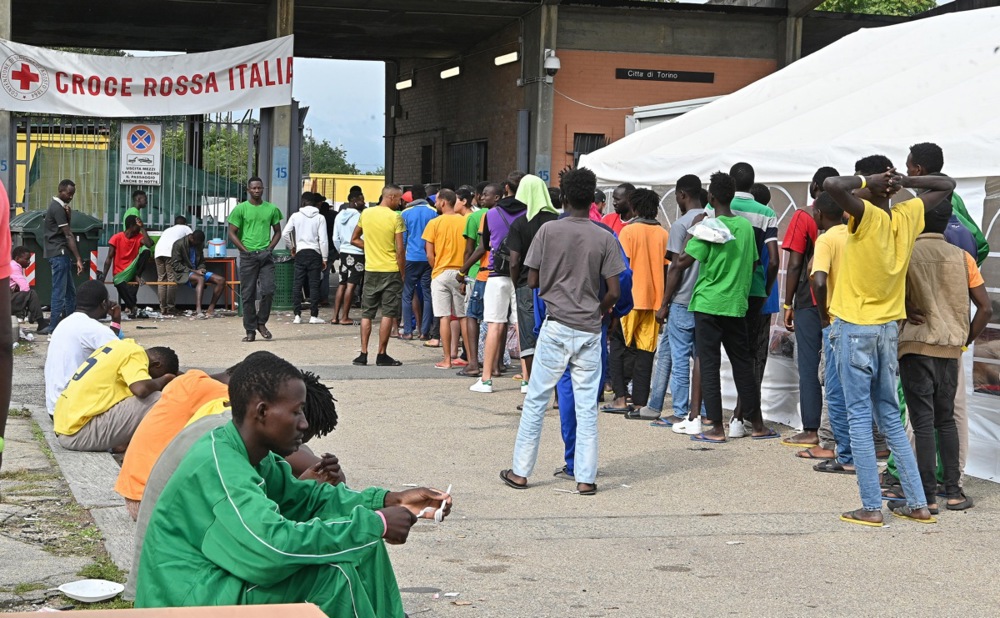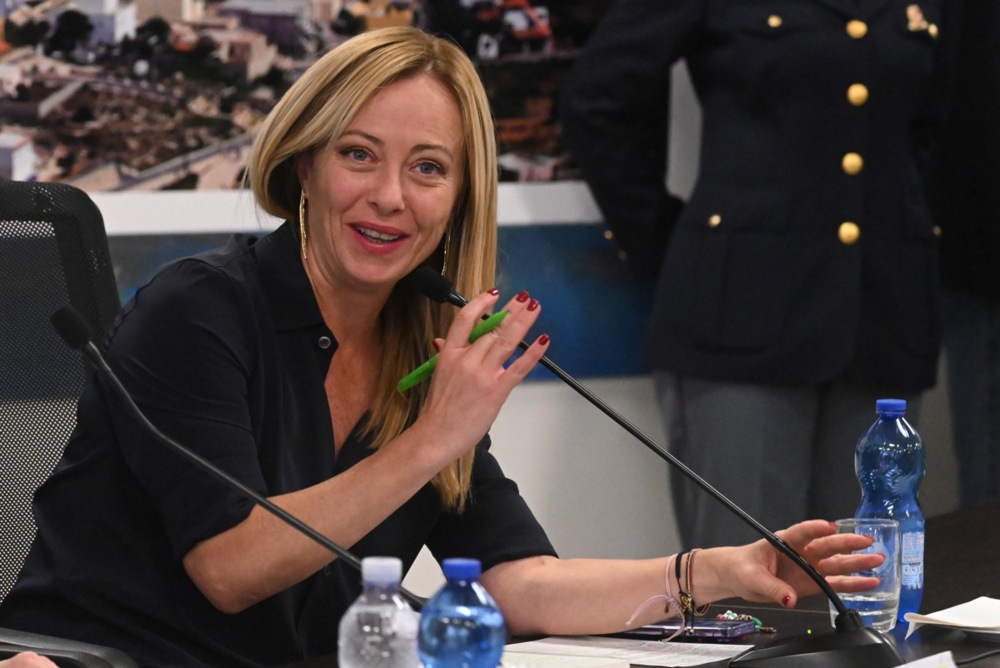The centre-right Democratic Party (DP) in Albania is going to the country’s Constitutional Court to fight an asylum agreement between the progressive Albanian Government and Italy.
Albania and Italy have signed a bilateral deal where Italy promises payment for sending migrants to two facilities in Albania.
The opposition party claims the deal violates both international law and the Albanian Constitution. It asked Parliament to halt it being ratified in a letter to the court.
Because of this “incompatibility with the Constitution”, the DP seeks “prohibition of its ratification by the Assembly”.
Party members demand “suspension of the procedures for the ratification of the protocol between the Government of [Italy] and the Council of Ministers … of Albania, ‘On Strengthening Co-operation in the Field of Migration’”.
The DP claims the agreement violates human rights and was reached without the Albanian President Bajram Begaj’s approval, without consulting the UN and without being published in the official Government Journal.
“This protocol constitutes one of the most flagrant cases of violation of a set of rights and freedoms guaranteed by the constitution and international law,” it said.
As the DP represents one-fifth of Parliament, the Constitutional Court can review the case.
On December 6, Albanian interior minister Taulant Balla said: “With this agreement, our country once again reaffirms its role as an ally of Italy and in addressing the challenges that come to us from illegal migration.”
He highlighted that the migrants from Italy would not stray outside the assigned areas and Italy would administer and fund the entire procedure.
Under the agreement, Albania will host up to 3,000 migrants a month.
Italy will pay to house up to 36,000 asylum seekers in Shen Gjin, an Albanian port-city, and an adjacent decommissioned military base, Gjadri.
Italian Prime Minister Giorgia Meloni has said she expects the centres to become operational next spring.
Apart from the DP, others are also not happy with the deal. Human rights organisations oppose it as do progressives in Italy and Conservatives in Albania.
Council of Europe Commissioner for Human Rights Dunja Mijatović said there were concerns about the plans. She said she had “a range of important questions on the impact that its implementation would have for the human rights of refugees, asylum seekers, and migrants”.
Mijatović further claimed the deal created “an ad hoc extra-territorial asylum regime characterised by many legal ambiguities”.
“In practice, the lack of legal certainty will likely undermine crucial human rights safeguards and accountability for violations,” she said, adding that would result “in differential treatment between those whose asylum applications will be examined in Albania and those for whom this will happen in Italy.”
European Commissioner for Home Affairs Ylva Johansson said the agreement did not violate European Union human rights laws – and that it fell outside of its jurisdiction.
If the deal with Albania is successfully implemented and operated, observers say it could become a blueprint for the EU. The bloc is desperately is seeking partners to work with on sheltering migrants and deterring asylum seekers from making the risky Mediterranean Sea crossing.
Italy is among European countries that have received the highest number illegal migrants in the continent-wide surge that has been ongoing for months.
Compared to the same time last year, the number of migrants arriving in Italy by boat had almost doubled to 140,000 by mid-October.





